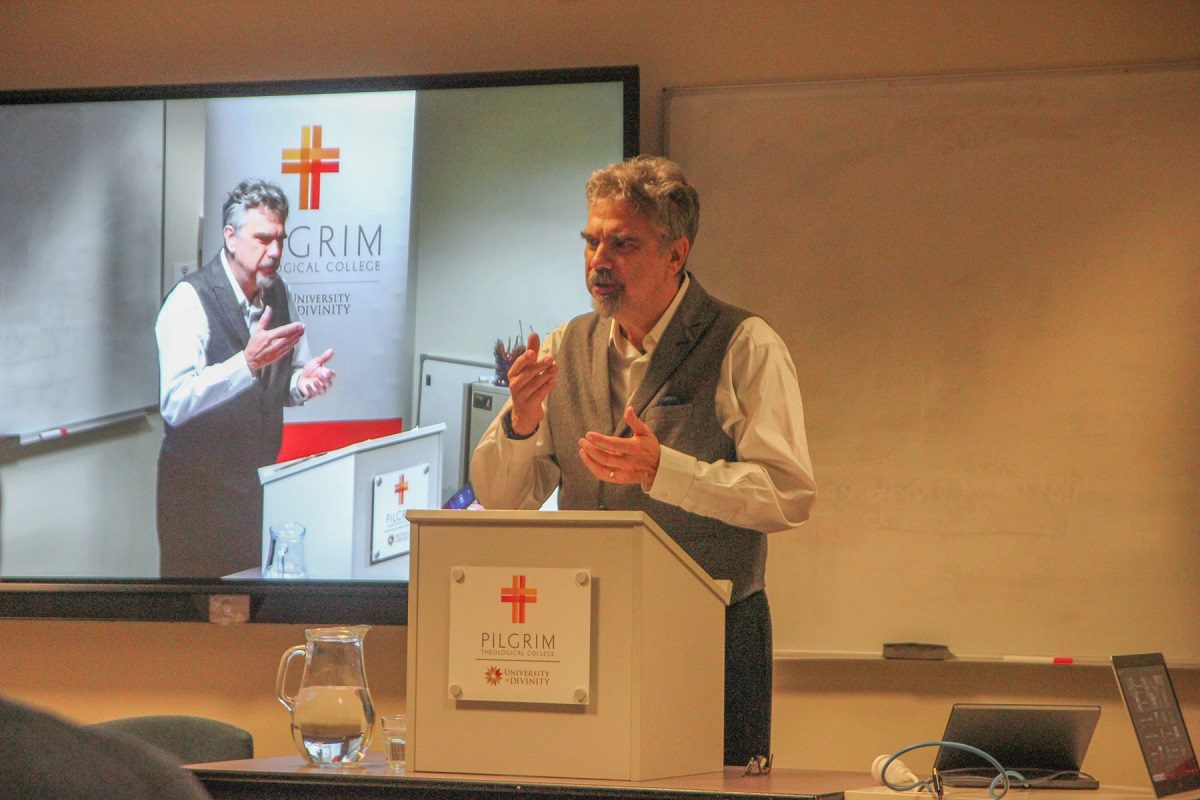By Andrew Humphries
When theologian, academic and author Miguel De La Torre delivered the Northey Lecture at the Centre for Theology and Ministry in September, he had a slightly unusual message for those in the audience.
It’s time, he said, to abandon the concept of hope as a theological principle when fighting for a more just world.
In fact, says Miguel, embracing hopelessness is now the only way forward.
It’s a philosophy that has its roots in Miguel’s own childhood in New York, after his arrival in the United States from Cuba as a toddler.
As a Latino in the US, Miguel was given a quick and brutal introduction to the reality of life for immigrants and the underprivileged in the supposed land of the brave and the free.
“(Those early years) had an enormous impact because I was defined as a refugee and an immigrant,” Miguel explains.
“So, there was this feeling of never really belonging, and there was poverty as well, and never having enough to eat.
“It wasn’t until I was 18 that I was able to start earning money, escape poverty and begin to realise exactly what I went through.”
At the age of 22, Miguel became a Southern Baptist because, he admits, the church’s right-wing conservative thinking fitted perfectly with his own world view and political ideology at the time.
“At that stage it provided a spiritual justification for the political views that I held,” he says.
“The Southern Baptist church had begun to provide a moral compass for me, as problematic as that compass was at the time.”
More than 40 years later, Miguel is happy to acknowledge he would not now recognise his younger self.
“Miguel of 40 years ago would now regard me as hopelessly left-wing,” he says.
“But back then I was a misogynist and capitalist, all of the things closely associated with right-wing politics and Christian nationalism in the US.
“It wasn’t an easy cloak to throw off and it took many years to do so.”

Miguel De La Torre’s childhood in New York, as a Latino immigrant, gave him a quick and brutal introduction to the reality of life in the United States.
Change for Miguel came through reading some of the Latino writers who were leaders in the liberation theological movement of the 1960s.
“I then began to reject those views that I had held as a right-wing religious and political person, but it took a long time to wrestle with the fact that those earlier views were wrong,” he says.
Having seen both sides of the coin, so to speak, Miguel has a strong message to impart.
“When I talk about issues of social justice and complicity with the structures of oppression, it’s not an attempt to make people feel guilty but to say that ‘yes, I have been there as well, and how do we move on from what we were and what we believed in to creating a more just society’?” he says.
“My message is always one of doing and action, and it’s when we move towards social justice that we truly become ecumenical and a body of believers, even if we believe in different things.”
Miguel admits his call to abandon hope, and with it a Eurocentric approach to philosophy and theology, won’t sit easily with everyone.
But it is the allure of hope, he insists, that has continued to dispossess the marginalised and disenfranchised.
“I’m sure it’s a call that will rub some people up the wrong way,” Miguel says.
“But we have to reject Eurocentric philosophy and theology because it’s been so complicit with colonisation.
“We also need to eliminate the concept of hope because hope becomes a tool allowing us to do absolutely nothing, and it becomes a middle-class privilege.
“But if people are hopeless, they will do whatever it takes to survive and it propels them to action.
“In a sense we need to develop ethics that screw with the system.
“Oppressed people have been doing this for thousands of years and I’m just giving some language and theory behind it.”

